back to all blog posts
From Learning to Leading, CCC Celebrates the First Graduates of the BHTA
Thursday, January 23, 2025Oregon’s behavioral health workforce is severely underfunded and understaffed, with an estimated shortage of 35,000 professionals statewide, a gap exacerbated by workforce instability, a lack of diversity in care providers, and the high demand for services due to mental health and substance use issues worsened by the pandemic. CCC is tackling this challenge head-on by developing a new generation of behavioral health leaders.
In 2024, CCC launched the Behavioral Health Talent Academy (BHTA), a training program designed to address Oregon’s critical shortage of behavioral health professionals. The BHTA offers a rich learning experience for CCC employees, empowering them to pursue certifications such as Certified Alcohol and Drug Counselor (CADC 1), Qualified Mental Health Associate (QMHA 1), and Peer Support Specialist (CRM & PWS). The goal is to equip employees with the tools, confidence, and credentials needed to advance in their careers and provide essential mental health and substance use disorder services to our community.
CCC’s workforce is uniquely positioned to take on this challenge because a significant portion of CCC staff have lived experience, making them excellent candidates to provide ongoing care to the community. The BHTA allows employees to gain the qualifications necessary to meet the growing need for skilled professionals.
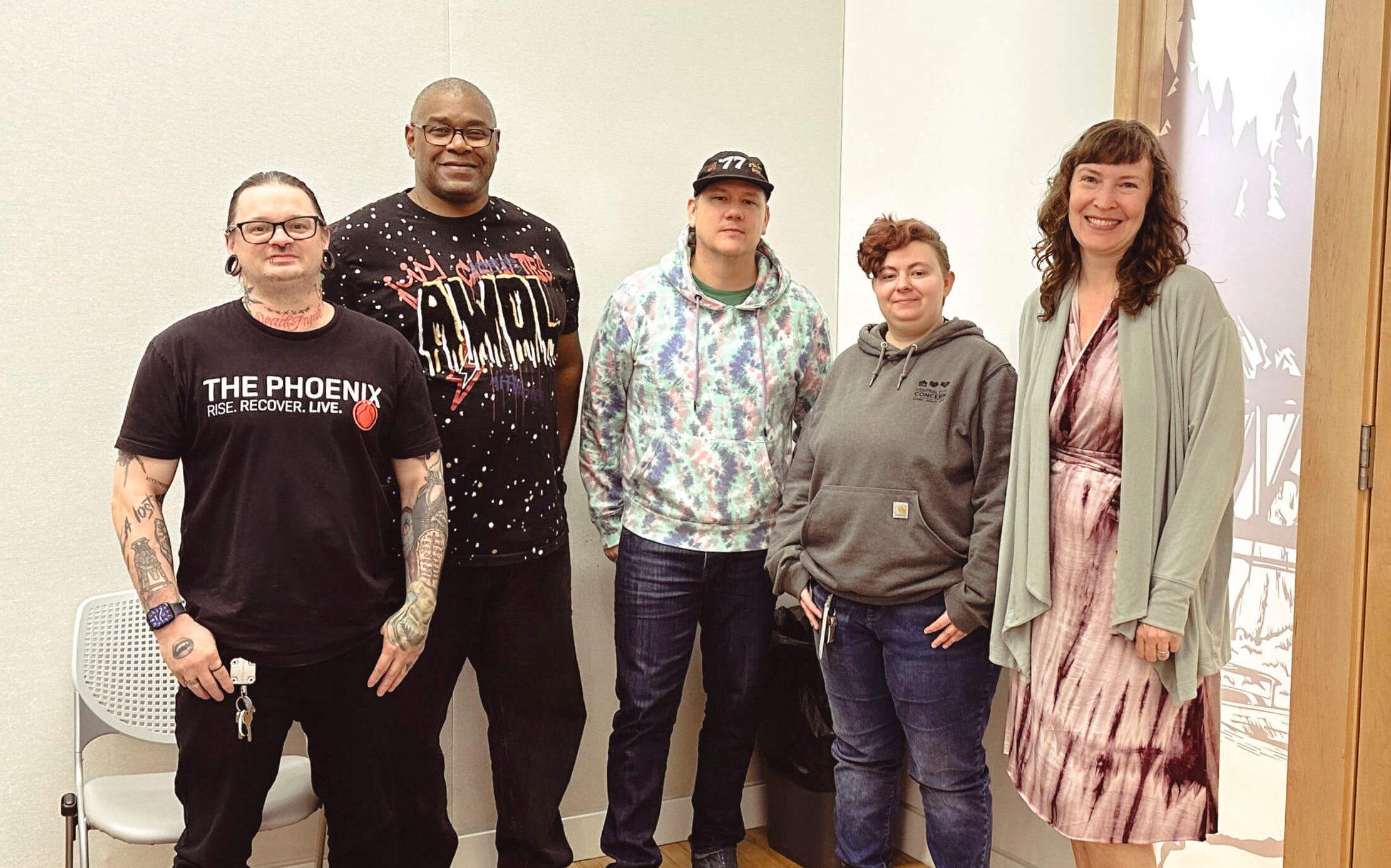
Through the BHTA, CCC offers comprehensive support, including career development resources, financial assistance, and mentorship throughout the process. Employees are provided with the guidance and tools needed to navigate their education while balancing work and life responsibilities. By offering certifications in key behavioral health fields, the BHTA creates pathways for employees to build long-term careers and help address the critical shortage of skilled professionals in Oregon’s behavioral health system.
Celebrating the First BHTA Peer Specialist Graduates
On November 25th, CCC’s Behavioral Health Talent Academy marked a major milestone with its first graduation ceremony! Seven graduates completed the Peer Support Specialist program, equipping them to provide vital support to our clients—ranging from crisis intervention to mentorship—all through the lens of recovery.
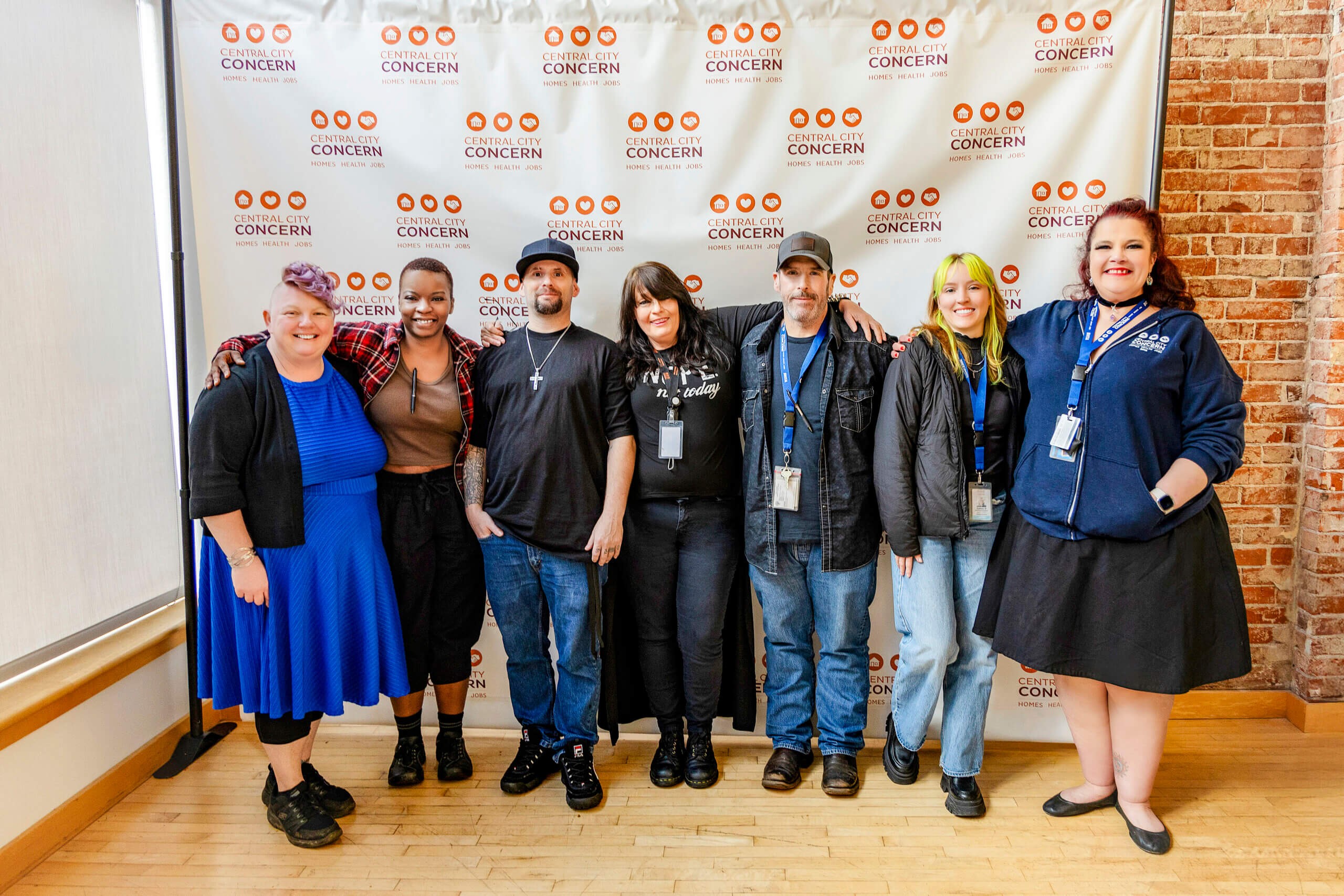
Peer Support Specialists play a critical part in our mission, yet filling these positions can be challenging. This innovative academy helps address those gaps, ensuring we can better serve our community.
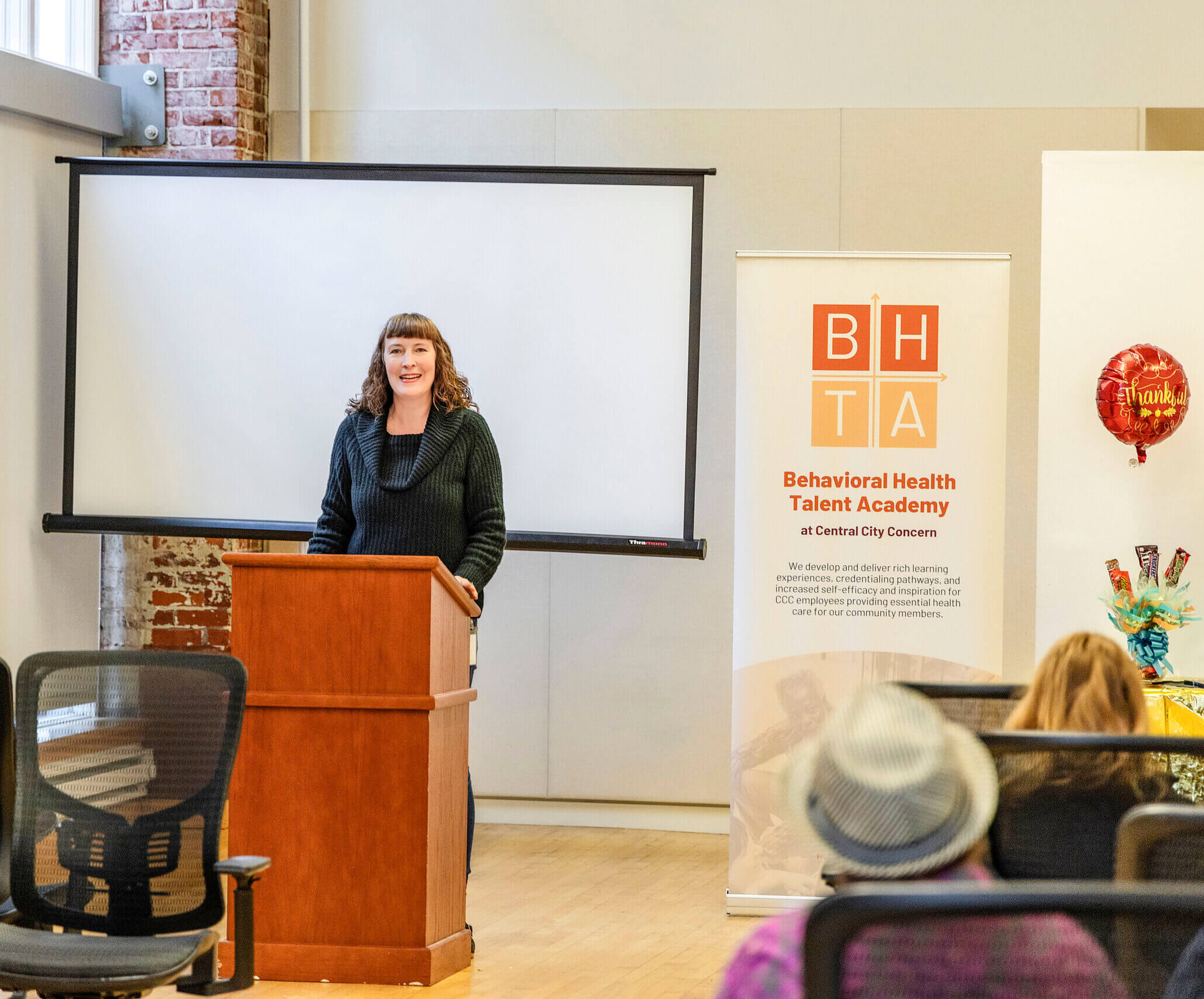
“Training with our first peer cohort reminded me of why I work in behavioral health. Our students were so eager to learn and grow! They formed connections with one another, with our team, and were able to learn the skills that will help them do effective peer work. Throughout my career in peer services I have seen peer recovery support change so many lives, including mine! I have had the incredible privilege of learning so much from people in recovery. I know our BHTA Peer program graduates will take their new skills and use them to help our community members who need someone to believe in them.”
– Linda May Wacker, Director of the Behavioral Health Talent Academy and Warm Welcome at CCC
One of the graduates, Susan Knoke, shared how impactful the program was in building the skills and confidence needed for this essential role.
Turning Barriers into Opportunities
Susan Knoke’s journey is defined by resilience and transformation, as she found her true calling after years of struggle. Battling substance use and periods of sobriety since age 10, a traumatic event in 1993 triggered a severe relapse that spiraled into a life of heavy substance use, crime, and a five-year prison sentence. Prison became a turning point, offering Susan her first opportunity to get clean in four years. Upon release, she joined CCC’s Parole Transition Program, beginning the path to lasting sobriety. By 2007, Susan had overcome her addiction for good and started a new chapter of her life.
In the years that followed, Susan got married, found stability in various jobs, and became an activist, fighting for affordable housing for low-income families. However, in 2020, the pandemic brought a new series of hardships, leaving her divorced, homeless, and jobless. Yet again, CCC stepped in and provided her with housing. Determined to rebuild her life, Susan took the bold step of working as an on-call employee at CCC. That role ultimately transformed her life. From the moment of orientation, she realized that CCC was where she wanted to build a long-term career. For the first time, Susan felt worthy of a respectable job and capable of independence.
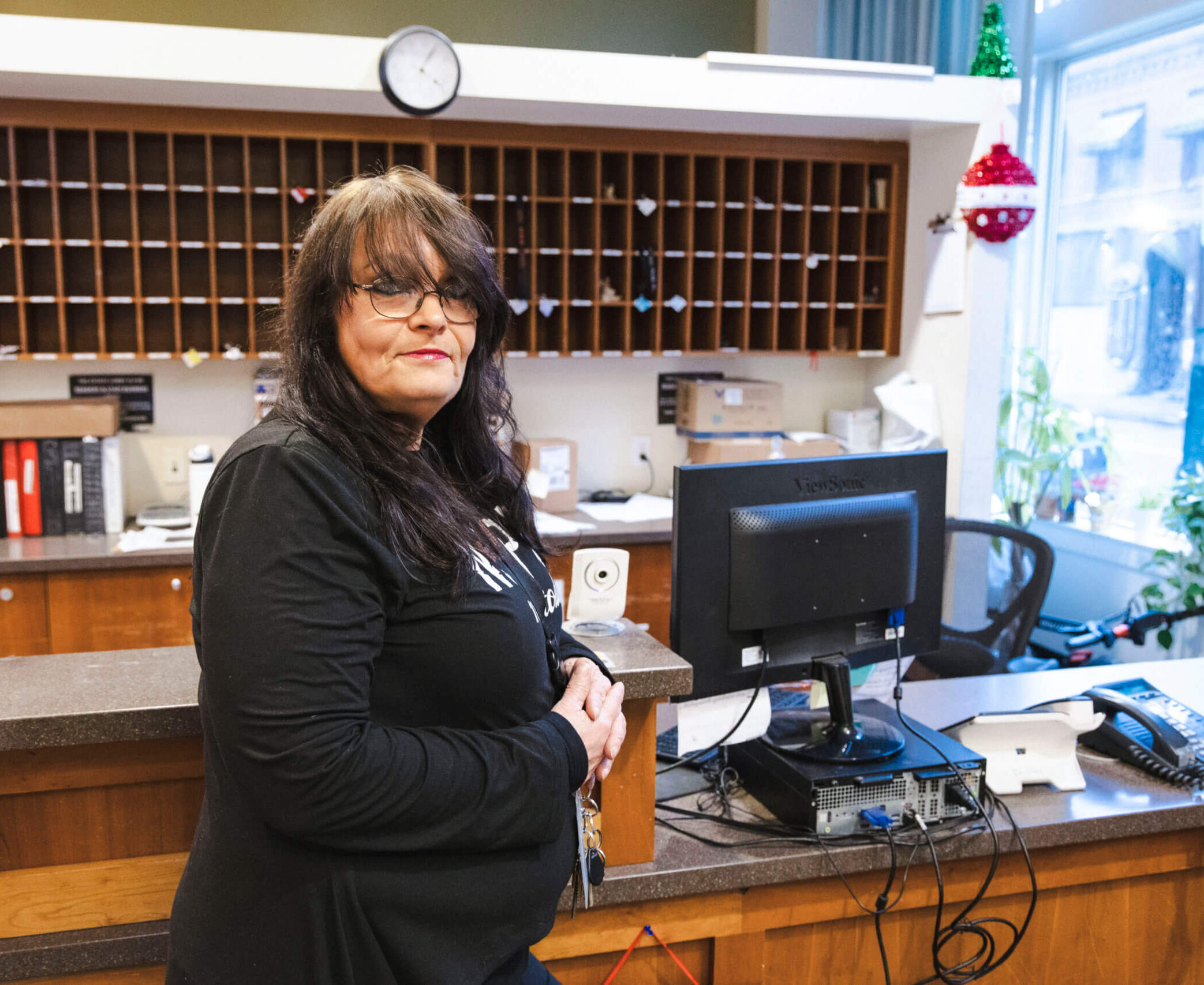
About 18 months into her employment, Susan participated in a staff listening session where she spoke about the barriers that had made it difficult for her to pursue education, specifically her long-held dream of becoming a Peer Support Specialist. When she learned about the Behavioral Health Talent Academy (BHTA), designed to reduce those barriers, she was hesitant but applied at the last minute. When she received the call for an interview, she knew she had found her true calling, and it felt like destiny.
The certification process wasn’t easy. Susan faced challenges, including losing all her notes on the day of the final exam. In that moment, she thought she had ruined her chance. But then one of the trainers got up and led the class in a group test, and Susan realized something powerful: she was receiving peer support while learning how to provide it. The BHTA gave Susan a sense of community and support she had never experienced before. It validated her calling to the field and provided her with the tools to thrive. For the first time in her life, Susan felt empowered.
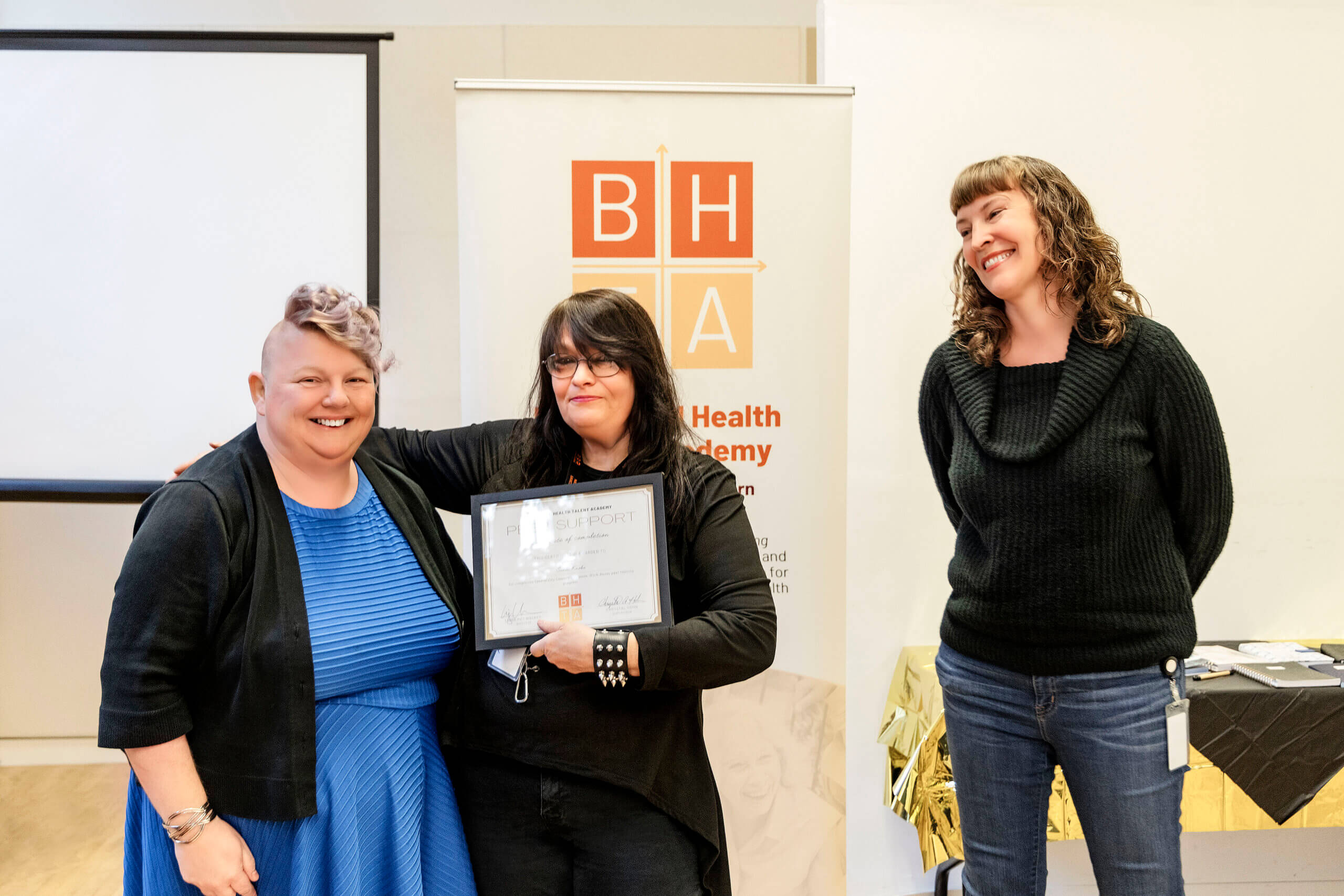
“I have always been all alone trying to reach my goals and accomplishments, and for the first time, I felt like I was not. Now I am getting an education and experience in a career I feel passionate about. I can go wherever I want from here… I owe that credit to CCC, Mr. Gary Butler, and the BHTA staff, Chrystal, Linda May, and Kari. Who believed in me. Now it is time for me to pay it forward and give hope to my many future peers who may have lost their own.”
– Susan Knoke
The BHTA’s Path Forward
The future of the BHTA is vital in addressing Oregon’s behavioral health crisis. By continuing to expand educational resources and workforce development, the program will play a key role in creating lasting change in the field. Currently, the BHTA is running two CADC cohorts, one QMHA cohort, and another QMHA and Peer cohort starting in February 2025. As the program grows, it will offer even more opportunities for career advancement, increase credentialing pathways, and provide avenues for professional growth both within and beyond the behavioral health sector.
Operational Stability is Critical
CCC has secured start-up funding from CareOregon and several private donors to support the first two years of the BHTA, with additional start-up grants identified for FY26 and FY27.
While we are partnering with health care partners, in order to sustain and expand the BHTA an additional $1.1 million is required annually to support a new cohort of ten CADCs, ten QMHA-certified professionals, and twenty Peer Support Specialists.
In the meantime…
- We are investigating billable services through the Oregon Health Authority (OHA) for CADC learners as they transition to clinical hours.
- Efforts are underway to apply for state funding, given the statewide nature of the crisis.
- The CCC donor relations team is also working to build a pool of donors committed to providing larger endowed gifts for the program’s long-term sustainability.